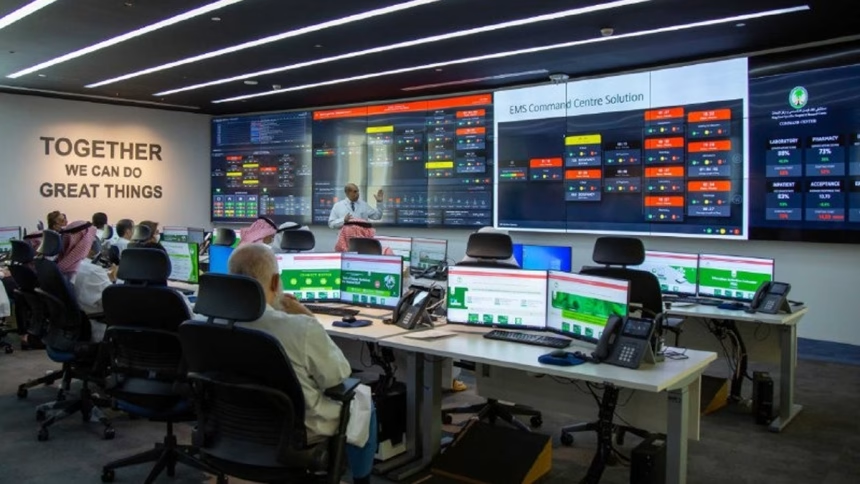Riyadh, Saudi Arabia– King Faisal Specialist Hospital & Research Centre (KFSHRC) is setting new benchmarks in digital healthcare transformation through its Smart Hospital initiative, powered by cutting-edge technologies such as artificial intelligence (AI), simulation, and immersive tools. These advancements are reshaping how care is delivered, improving workforce readiness, clinical outcomes, and operational efficiency.
At the forefront of this transformation is the Academic & Training Affairs (ATA) division, which integrates simulation labs, e-learning, and virtual reality (VR) to create immersive, hands-on training for healthcare professionals. From emergency response to surgical planning, these tools help medical teams rehearse complex procedures, enhancing clinical preparedness and patient safety.
Operationally, the Patient Flow & Capacity Command Centre is applying AI to optimize hospital functions in real time. Since its inception, the Centre has executed over 170,000 interventions, slashing inpatient bed wait times from 32 to just 6 hours and reducing emergency delays by 14%. In 2024 alone, KFSHRC welcomed more than 46,000 new patients and processed upwards of 79,000 referrals. Meanwhile, smart technologies like the Noor robot have enriched patient experiences by offering real-time assistance and seamless access to hospital services.
Across Radiology, Pathology, Genomics, and Oncology, AI-driven innovations are supporting earlier diagnosis, more precise interpretation, and tailored treatment strategies. These advancements are spearheaded by the Centre for Healthcare Intelligence (CHI), which has developed more than 20 AI applications focused on medical imaging, decision support, and operational efficiency. In collaboration with the Saudi Commission for Health Specialties, CHI also leads national training programs to cultivate a digitally fluent healthcare workforce. At the 2024 GAIN Summit, CHI introduced a generative AI platform that synthesizes patient data to expedite diagnostics and streamline triage.





















